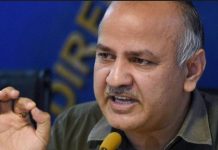What the spokesperson meant was that the continuation helped to save Modi, who can easily contend that he is not opposed to fdi in retail, but his ministers were. Moreover, if the government reversed the retail policy, the prime minister would not be able to make exaggerated claims during his foreign tours that he would lay the red carpet for foreign investors in a bid to push his grandiose ‘Make in India’ plan.
EASIER SAID THAN DONE
Ever since he assumed power, Modi has said that he would get rid of archaic laws, pursue long-term policies, and make it simpler for all investors to do business in India. He showed the right intents when he diluted stringent labour laws for small and medium enterprises, made environment clearances time-bound and passed an all-encompassing law that allowed the law ministry to amend outdated laws.
However, his cabinet ministers and bureaucrats have found the going quite tough. They were unable to help businesses to set up new projects because they found that most of the clearances were required at the state levels. Hence, their hands were tied if the projects were located in non-BJP, non-NDA-2 ruled states. In a recent interview, Steel Minister Narendra Singh Tomar admitted that the government could act as a mere ‘facilitator’ and investors need to pursue clearances from the state governments.
Tomar’s suggested route out of the impasse was that private firms, including MNCs such as South Korea’s Posco, which has spent years trying to construct a mega steel plant in Odisha, should join hands with the state-owned firms. Most public sector units (PSUS) had surplus land and they could locate their projects in friendly states, which would bend over backwards to give the requisite clearances. It seems a ludicrous way out. One, NDA-2 has not given more decision-making autonomy to the PSUS. Why will the MNCs tie up with state-owned entities that are unable to act and decide? Two, the private firms are in the business to earn profits. Why will they share them?
Three, mncs spend billions of dollars on proprietary knowledge, intellectual property rights and technology. Why should they share them with others? Finally, foreign firms believe in either complete or majority control over their projects. Will the psus give them majority stakes when they possess the land? For example, when POSCO complained about Odisha government’s attitude, the central steel ministry asked it to partner with sail, a PSU. During the subsequent discussions, the talks failed for two reasons. First, POSCO was reluctant to share its proprietary technology, and sail did not wish to get stuck with a single technology. Second, POSCO wanted a majority stake, and sail insisted that it should have an upper hand.
Clearly, the one-time tea server has realised that there can be too many slips between the cup and the lip. Throwing ideas and enumerating a grand vision is one thing. Implementing them and making them work on the ground is another. The fact is that time is running out for the Modi government.
Unfortunately, the economic forecast for this year (2015-16) is quite bleak. Experts have reduced the economic growth estimates, monsoons may be below normal in most states, private and public investments have failed to pick up, corporate results are discouraging and inflation may raise its tentacles yet again. More importantly, this may have a political impact; the BJP may not do as well in the forthcoming Assembly election in Bihar. The political-economic combination can easily derail all the plans that Modi has.
editor@tehelka.com












